When embarking on a construction project, ensuring the confidentiality of sensitive information is paramount. That's where a non-disclosure agreement (NDA) comes into play, serving as a protective layer for both parties involved. This letter template outlines the essential components of an NDA tailored for construction projects, facilitating a smoother collaboration while safeguarding proprietary details. Ready to dive deeper into the specifics of drafting an effective NDA? Let's explore!
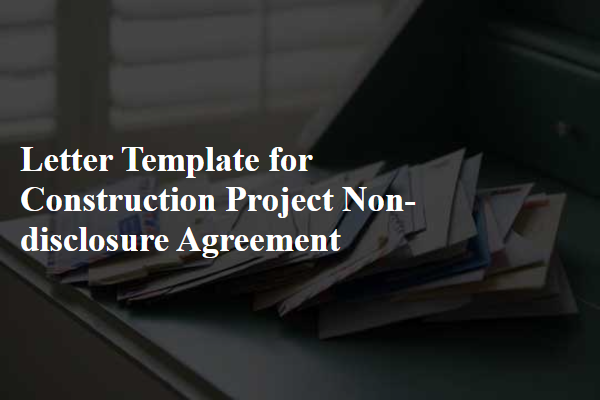
Parties Involved
The parties involved in this construction project non-disclosure agreement include ABC Construction Ltd., a leading contractor based in London, and XYZ Development Corp., a prominent real estate developer headquartered in New York. ABC Construction Ltd., with over 20 years of experience and numerous successful projects, specializes in commercial and residential developments. XYZ Development Corp., known for innovative urban developments, has been operational since 2005 and has completed over 15 high-profile projects across the United States. The collaboration between these two parties aims to ensure confidentiality regarding sensitive information shared throughout the project's phases, safeguarding trade secrets and proprietary processes crucial to their operational integrity.
Confidential Information Definition
A Non-Disclosure Agreement (NDA) in the context of a construction project encapsulates key elements of Confidential Information. This includes proprietary project plans, architectural designs, structural specifications, bid details, materials lists, and financial documents that relate to the project located at 123 Main Street, Anytown, USA. The definition extends to any communications, digital files, or printed materials that contain sensitive information not intended for public disclosure. Additionally, any confidential meetings, discussions, and negotiations between involved parties such as contractors, subcontractors, and suppliers should be deemed as Confidential Information. Unauthorized distribution or discussion of this information can compromise competitive advantage and lead to potential legal ramifications under the terms of the NDA.
Obligations of Receiving Party
In a construction project non-disclosure agreement (NDA), the obligations of the Receiving Party impose significant responsibilities regarding the handling of confidential information. The Receiving Party must ensure confidentiality of all proprietary construction plans, blueprints, and financial documents, typically shared during the project's planning stages. The Receiving Party is required to limit access to this confidential information solely to authorized personnel involved directly in the project, avoiding disclosure to any external third parties without prior consent. Moreover, the Receiving Party should implement reasonable security measures, including data encryption and secure storage systems, to protect sensitive information from potential breaches or leaks. Upon project completion, the Receiving Party must return or destroy all proprietary materials to prevent any unauthorized use or dissemination. Any breaches of these obligations could result in legal repercussions, including civil lawsuits and financial penalties, impacting both the project's integrity and the future collaboration opportunities.
Duration of Confidentiality
In construction projects, confidentiality agreements safeguard sensitive information related to proprietary techniques, architectural designs, and financial data. The duration of confidentiality typically spans the entire length of the project, which may range from several months to years, depending on the complexity of the construction. Post-project, the confidentiality period often extends an additional five to ten years, ensuring that critical information remains protected against unauthorized dissemination. Specific clauses may detail exceptions, such as information publicly disclosed or required by law, emphasizing the importance of mutual trust in protecting trade secrets within competitive markets.
Legal Remedies and Enforcement
In construction projects, confidentiality is crucial to protect sensitive information. A Non-Disclosure Agreement (NDA) establishes legal remedies and enforcement procedures in case of breaches. Legal remedies may include financial compensation for damages incurred due to unauthorized disclosure of project plans, proprietary techniques, or contractor agreements. Enforcement mechanisms are typically outlined, specifying the jurisdiction, such as state courts or arbitration panels, where disputes will be resolved. Specific examples include injunctions to prevent further disclosures and requirements for returning confidential materials. Enforcing these agreements ensures compliance and safeguards intellectual property within the competitive construction industry, fostering trust among contractors, clients, and subcontractors involved in projects. Detailed provisions in NDAs can facilitate accountability, emphasizing the importance of protecting confidential information in construction endeavors.
Letter Template For Construction Project Non-Disclosure Agreement Samples
Letter template of Non-Disclosure Agreement for Construction Project Collaboration
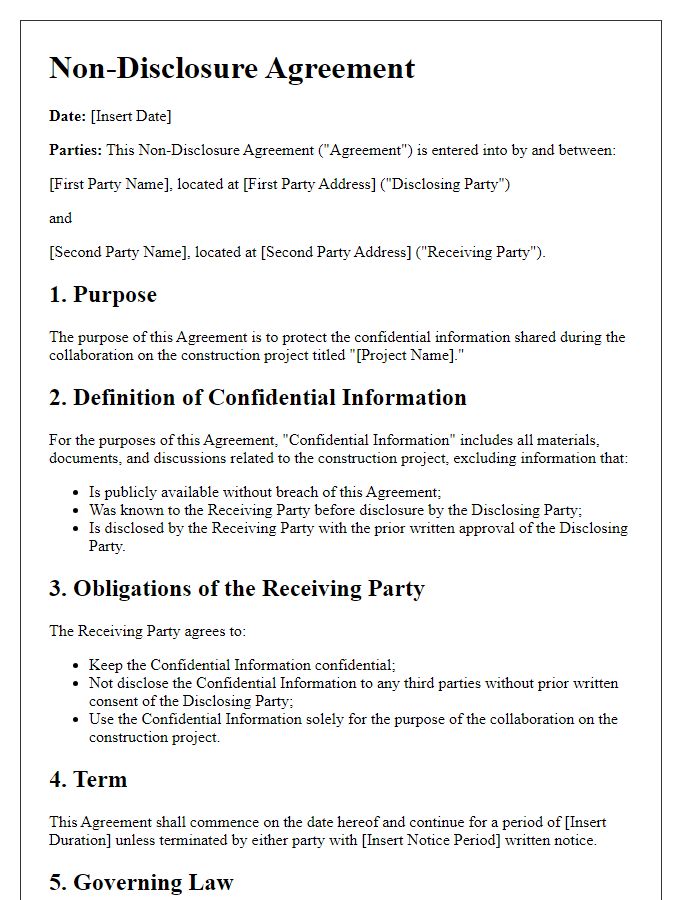
Letter template of Confidentiality Agreement for Construction Project Stakeholders
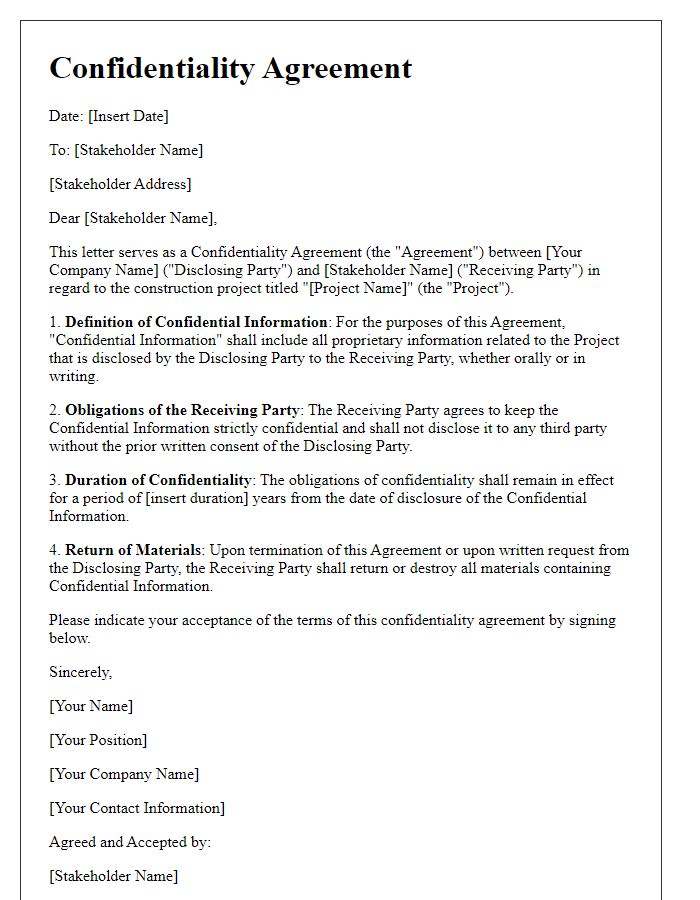
Letter template of Construction Project Non-Circumvention and Non-Disclosure Agreement
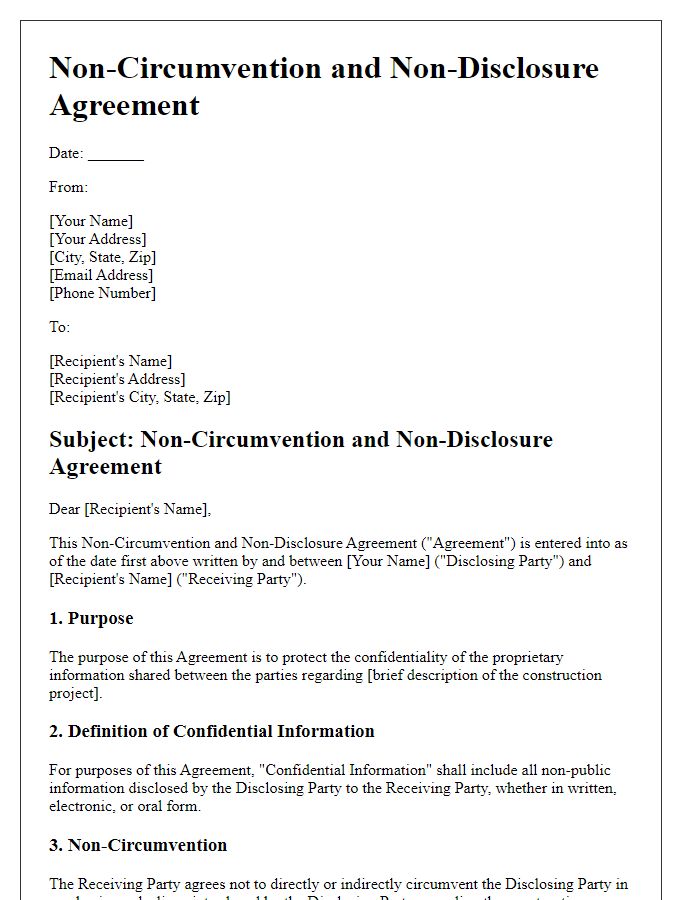
Letter template of Mutual Non-Disclosure Agreement for Construction Project Partners
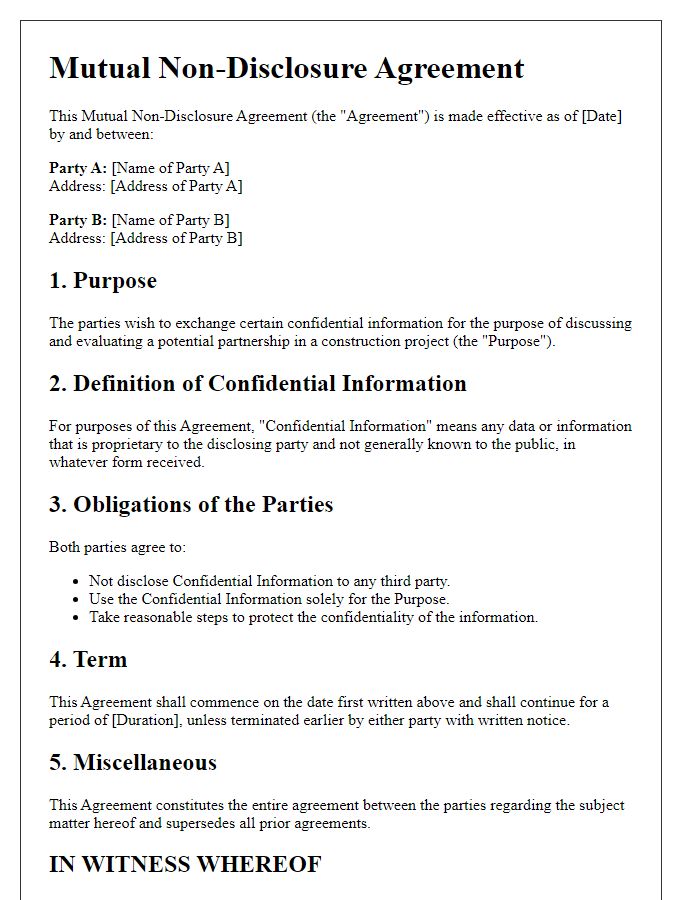
Letter template of Construction Project Proprietary Information Agreement
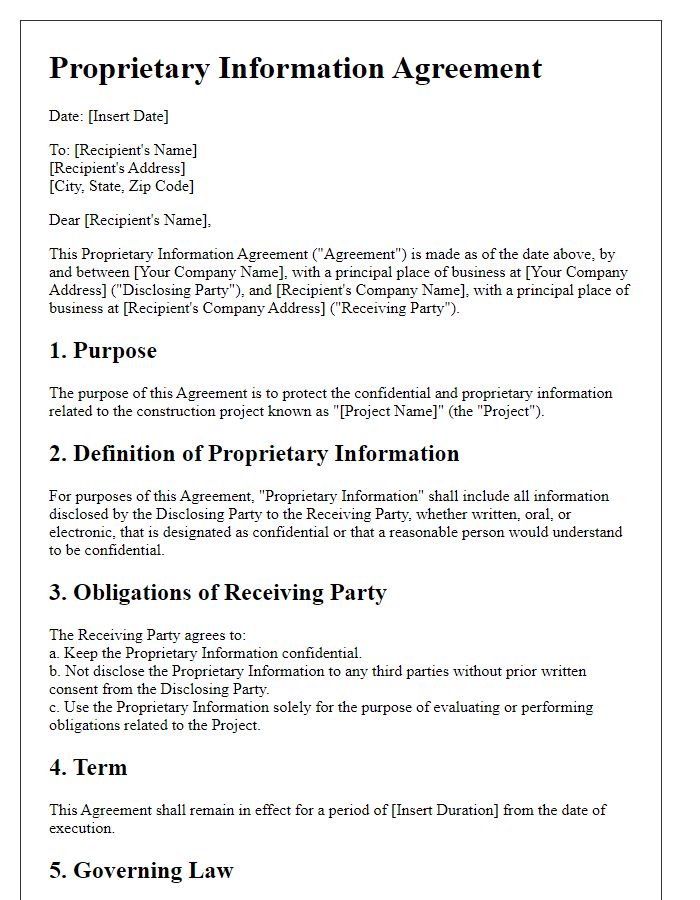
Letter template of NDA for Sharing Sensitive Data in Construction Projects
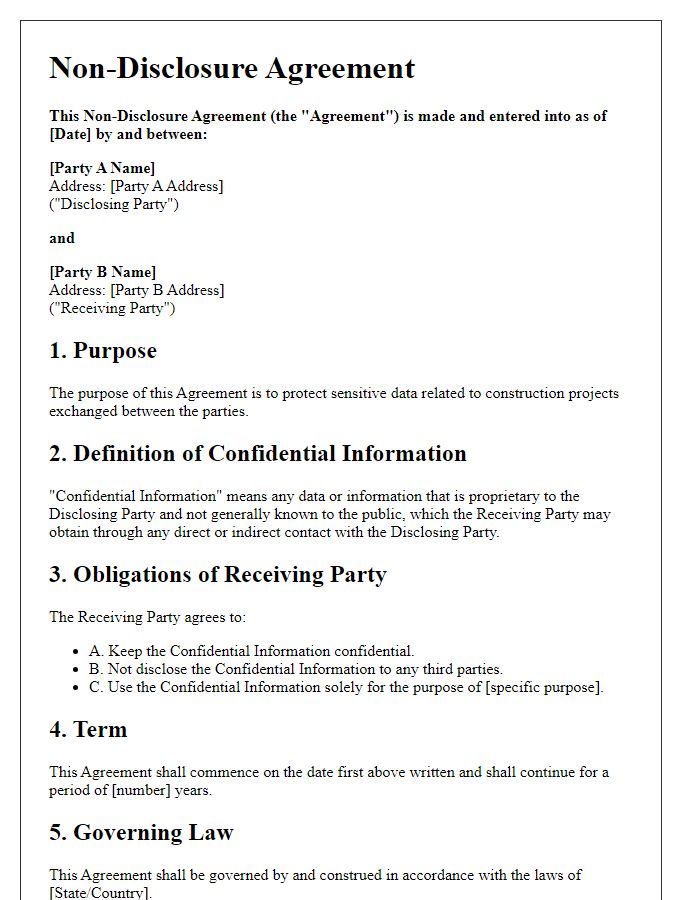
Letter template of Construction Project Confidential Disclosure Agreement
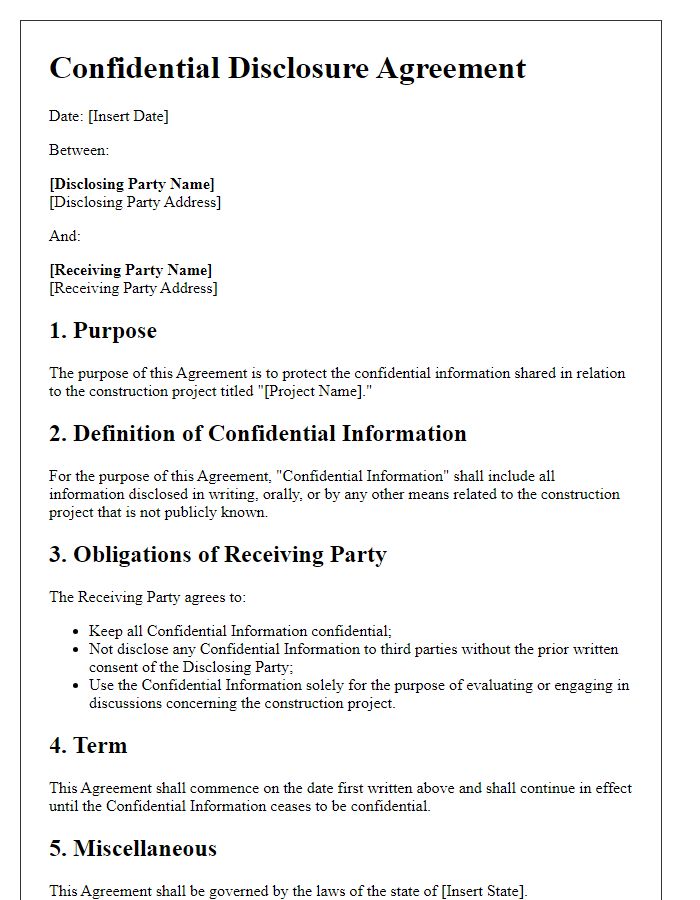
Letter template of One-Way Non-Disclosure Agreement for Construction Contracts
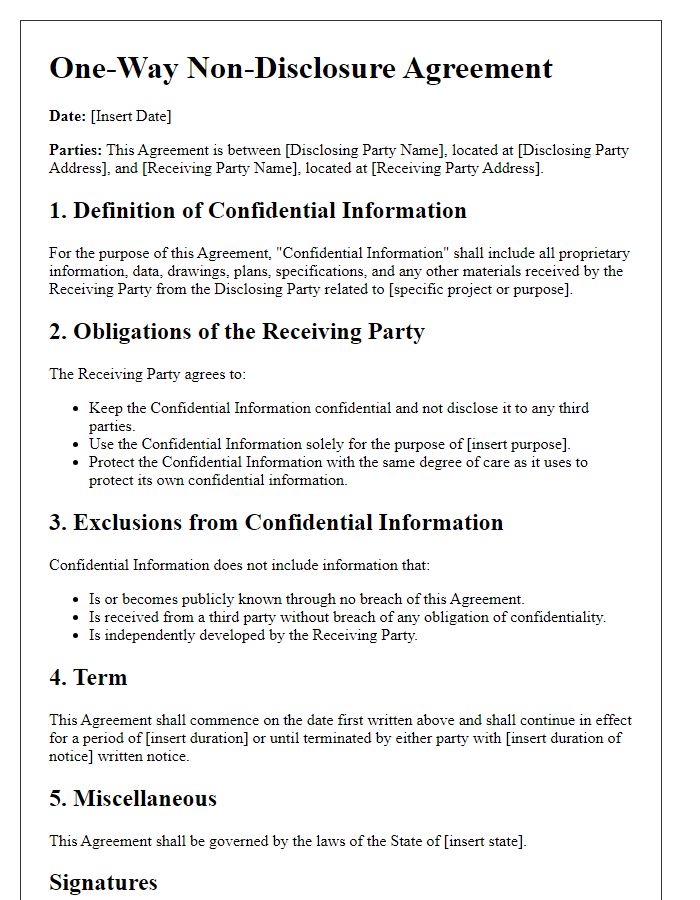
Letter template of Construction Project Confidentiality Assurance Letter
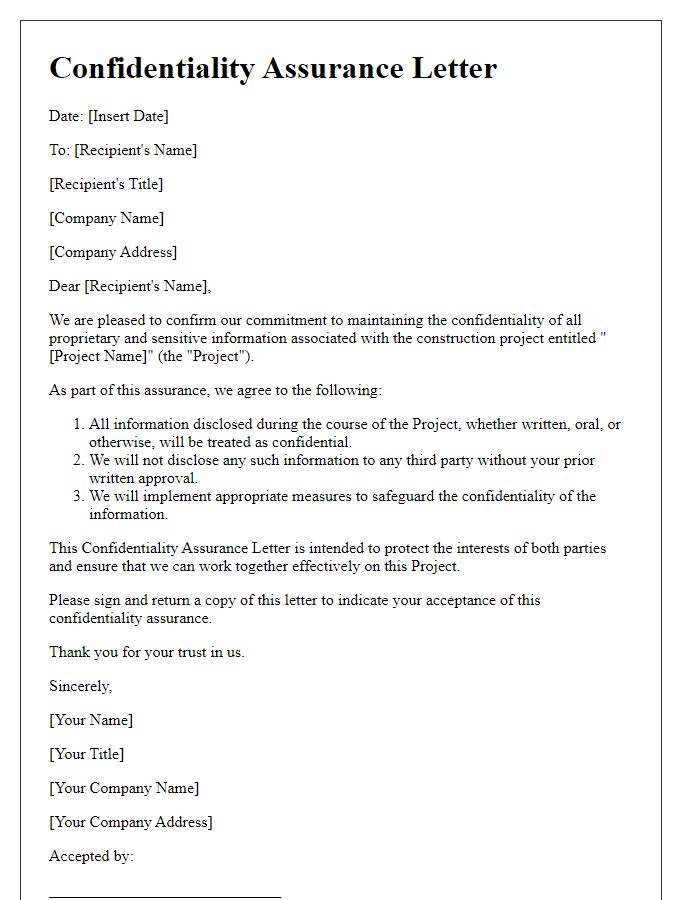

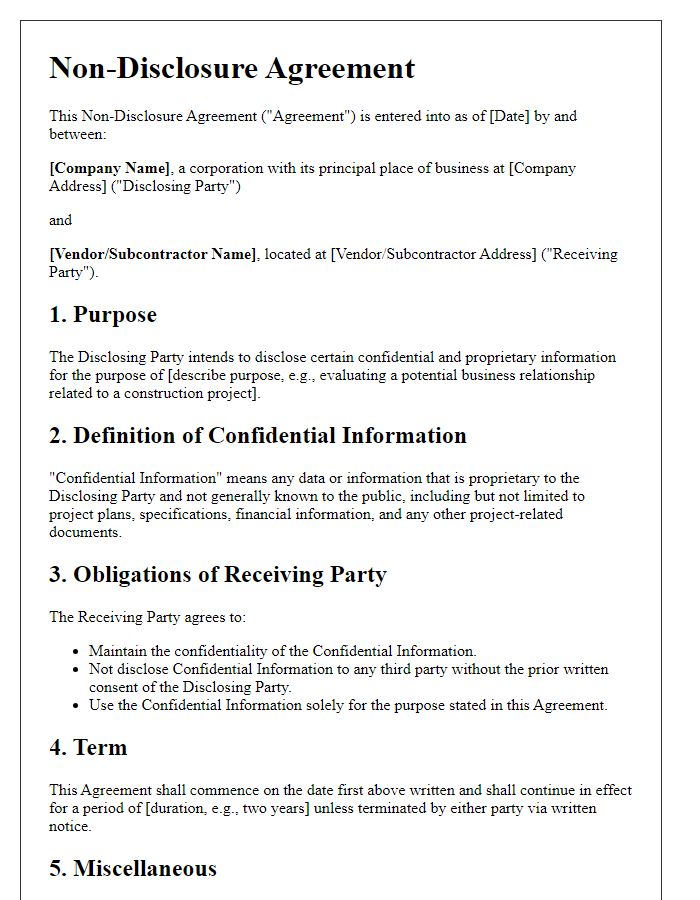


Comments